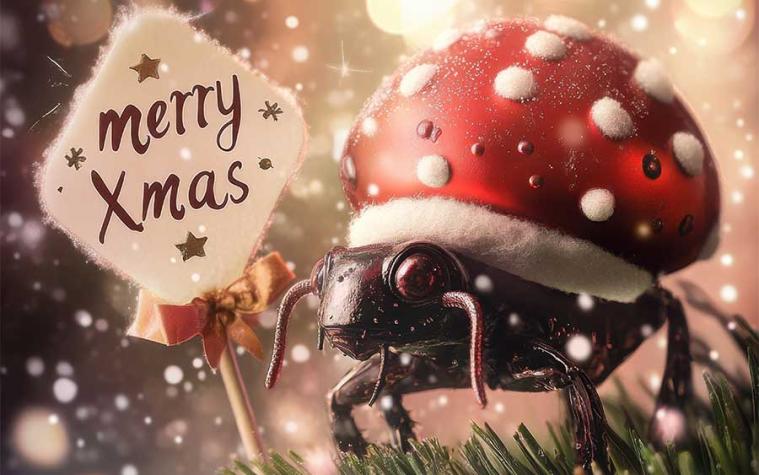COLUMBIA, Mo. – You want folks to “ooh” and “aah” when they see your holiday decorations, not “eww” and “ugh!”
“There is a risk that fresh trees and garland will bring unwanted gifts – insects – when moved from nature to inside,” says University of Missouri Extension urban entomologist Emily Althoff. “While many insects can be beneficial, they may not be ‘tree-mendous’ in our homes.”
To stop bugs from going home with you, some tree farms use a shaker to remove insects, bird nests and other unexpected gifts from trees.
“If this line of protection fails and you still find some insects in your home, don’t worry. They should die quickly,” says Althoff. “Most can and should simply be collected and removed or vacuumed.”
Remain calm if you find unwanted house pests, she says. “None of the insects commonly hitching a ride on your greenery are a hazard to you or your home,” she says. “They are just looking for a cozy place to spend the winter or lay their eggs.”
MU Extension offers free resources to identify and control insect pests at Integrated Pest Management all year. “MU’s Integrated Pest Management specialists are giving you the gift of IPM knowledge to prepare you for anything that comes your way,” she says.
Althoff lists some common insects you might find during the holidays:
Giant conifer aphid
Giant conifer aphids aren’t so giant, though they are one of the largest native aphid groups. They are about ¼ inch long and have two small spines on the ends of their bodies.
Bark beetles
“Let’s be honest, sometimes, the holidays are stressful, says Althoff. “Like us, sometimes trees get stressed.”
When this happens, they become more susceptible to bark beetle infestations. If beetles colonized the tree before harvest, they might be hard to see. However, evidence of the aftermath may look like sawdust emerging from the tree. The good news is that the beetles likely will not survive for long due to the low moisture in the tree after harvest.
Bark lice
Don’t let the name scare you; these lice are not the kind that live in your hair, says Althoff. These lice eat bark and other decaying organic matter such as pollen and fungi. In homes, their lifespans are cut short due to low humidity.
Mantises
Hold onto your Santa hats for this one, says Althoff. “While many of us are familiar with praying mantises, few folks get to see their beautiful ootheca (egg cases). Although this might not be the ornament you are hoping for, especially as dozens of baby mantises emerge once indoors, if you safely move the branch containing the ootheca to your garden, you may have received the gift of biocontrol for your vegetables and flowers next spring.”
